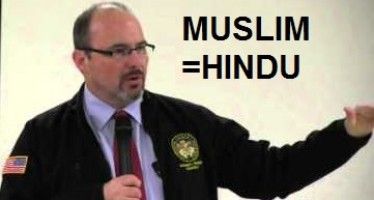California Budget Project analysis of Prop. 30 slights slam to business, jobs
By John Seiler
Sometimes the left-leaning California Budget Project produces worthy studies. Its new analysis of Proposition 30 isn’t one of them.
Being pushed by Gov. Jerry Brown and the state’s powerful government-worker unions, Prop. 30 would increase sales and income taxes taxes by from $6 billion to $8.5 billion a year. Supposedly the money would preclude cuts in K-12 and college education. But there’s no guarantee the higher taxes wouldn’t go toward the state’s burgeoning pension costs for retired government workers. All government money is fungible. These increases would allow cuts in other areas; which in turn would free money for the lucrative pensions.
The CBP analysis blithely ignores most of these problems. But the main problem is an economic one: It does not acknowledge that $8.5 billion siphoned from the private economy would severely slam the private sector, killing businesses and jobs.
The study does print one opposing argument, but only in a brief section at the end. And the arguments are not answered. It notes:
“Opponents of Proposition 30, including the Howard Jarvis Taxpayers Association, Sacramento Taxpayers Association, Small Business Action Committee, and National Federation of Independent Business/California, argue that the measure allows Sacramento policymakers to “raise taxes instead of streamlining thousands of state funded programs, massive bureaucracy and waste.”
“They contend that the measure would hurt small businesses and cost the state jobs.”
Otherwise, for the CPB study — the impression almost anyone will get — is that’s all California sunshine and Floribunda roses for everyone except the “1 percent” who will pay for the party.
The study reports:
“The wealthiest 1 percent of Californians — those with annual incomes of $533,000 or more — would contribute more than three-quarters (78.8 percent) of the revenues raised by Proposition 30’s tax increases, while the top 5 percent of Californians — those with annual incomes of at least $206,000 — would contribute 81.2 percent of the revenues raised.”
It’s worth pointing out, which CPB does not, that someone making $206,000 a year is not “wealthy,” although certainly well off. California is so expensive that an income of that amount here is the equivalent of something like $100,000 in Arkansas or Michigan. It’s barely enough to pay the already existing massive taxes, a sky-high mortgage and private-school tuition to get your kids out of the failing California schools.
Killing jobs
But even for those who truly are wealthy, say making $1 million or more a year, this tax is bad. Because these people use their incomes to re-invest in businesses, creating new jobs. Take away billions more dollars of that money and the state inevitably will have fewer businesses and jobs.
Two examples prove that, neither cited by the CPB, even for refutation. In 1991, Republican Gov. Pete Wilson, along with the Democratic Legislature of that day, increases taxes $7 billion a year. Far from solving a budget-deficit problem, it made the problem worse. General-fund revenues actually declined, by $2 billion to $40 billion, from fiscal year 1991-92 to 1993-94. And revenues didn’t recover until after the tax increases expired, going to $46 billion in 1995-96.
You can read the numbers for yourself. Open Gov. Jerry Brown’s own January 2012 budget proposal and scroll down to Schedule 6, page Appendix 12 toward the end.
Then there’s recent evidence from Great Britain. The Wall Street Journal reported:
“Preliminary figures out this week show that Britain’s 50% top marginal income-tax rate may have reduced tax revenue from top earners by as much as 5%, compared to the old 40% top rate. Tax revenue from those filing self-assessments due January 31 was down some £500 million versus last year.
“What this week’s numbers teach, however, is that Britain’s richest taxpayers are simply shifting their incomes, or themselves, offshore, or deferring income, or otherwise arranging their affairs to avoid the confiscatory new top tax rate. Maybe that’s unfair, too—the rich are usually better at protecting their assets—but it’s the predictable consequence of a tax rate whose animating purposes are envy and spite.”
So there’s no guarantee that Prop. 30 even will raise revenues; it could retard them.
The rich will flee
The CPB nowhere acknowledges that rich people obviously are the most highly mobile folks around. They can jump in their Mercedes and Cessnas and move to their houses in other states and countries. Their tax accountants can tell them how long they can stay out of California to avoid paying income and capital-gains taxes here.
If this tax passes, many rich people simply will permanently leave the state in disgust. That’s already happening. One of the Facebook co-founders, Eduardo Saverin, left America earlier this year for low-tax Singapore. The latest from Reuters:
“Facebook co-founder Eduardo Saverin, who renounced his U.S. citizenship earlier this year, made his debut on a Singapore rich list published by Forbes Magazine.
“Brazilian-born Saverin, 30, is No.8 on the list with an estimated net worth of $2.2 billion.
“Saverin has been living in Singapore since 2009 but only gave up his U.S. citizenship ahead of Facebook’s initial public offering.”
This happens all the time. If you’re a rich person, why be robbed by California’s potential 13.1 state income tax, which then would be the highest of any state, on top of a potential 39 percent federal tax if President Obama and congressional Democrats have their way? That’s a total of 52.1 percent. All for the privilege of living in a country, the United States, that abuses you and thinks of you not as a business and jobs creator, but as a tax slave.
The CPB report blythely says:
“Nevertheless, the average household in the bottom fifth of the income distribution would see a total tax increase of just $24, and the average household in the middle fifth would see an increase of just $55. In contrast, the average household in the top 1 percent would pay an additional $21,883 in taxes.
“Consequently, Proposition 30 would take a modest step toward reducing the significant income gap between low-and middle-income Californians and the wealthy.”
They just don’t get it. How can “low-and middle-income Californians” be better off when their jobs are killed after the wealthy leave the state — and take their money and businesses with them?
Related Articles
Democrat lawmaker resigns to explore job market
A Fresno Democrat, who has frequently authored legislation on behalf of major interest groups, will resign his position in the
Meg n Jerry buy into global-warming hoax
John Seiler: The evidence keeps piling up against the global-warming hoax, the biggest scientific fraud in history. It makes Piltdown
Tim Donnelly is no Tom McClintock. He’s the village idiot.
I understand why my CWD colleague and friend John Seiler sees the Neel Kashkari vs. Tim Donnelly fight through the





